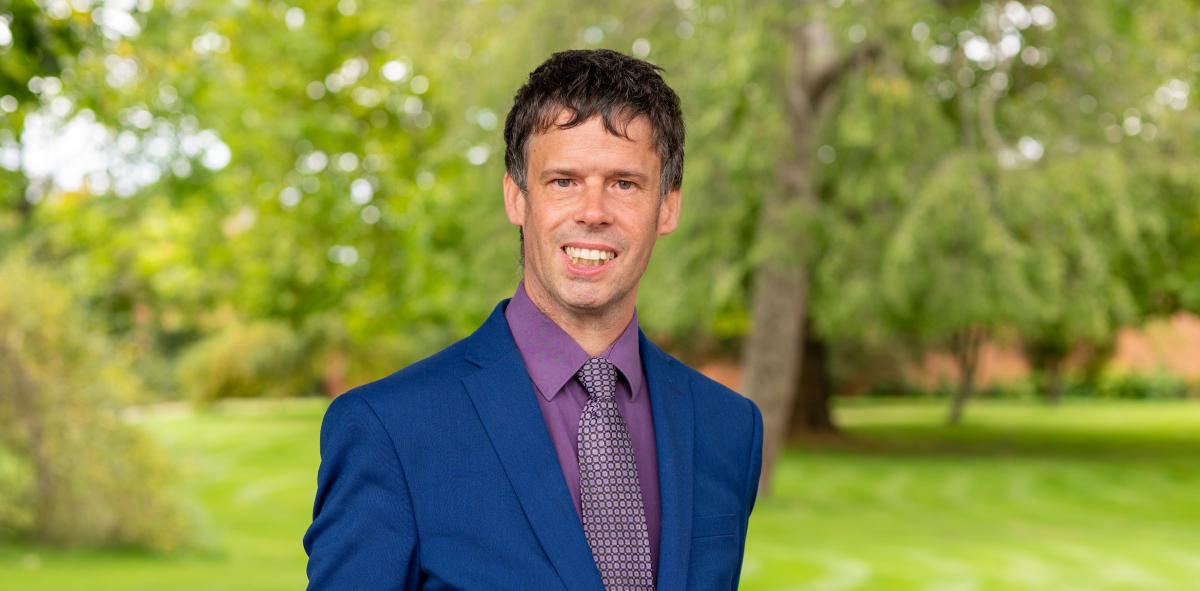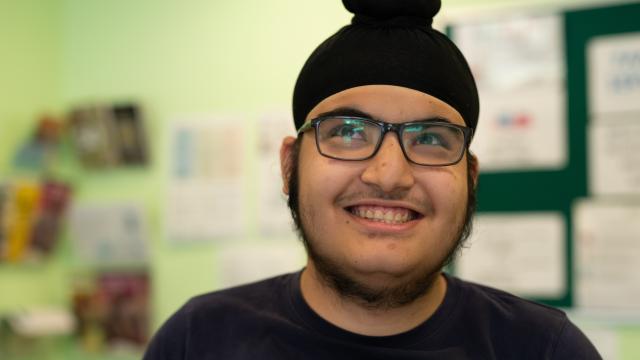
Why support with sight is a human right
The government backs the Special Schools Eye Care Service!
In June 2023 we were delighted to receive confirmation from the government that NHS sight tests will be on offer to all pupils in special schools from 2024/2025. As the article below was written when the service was in jeopardy, it may now contain some out of date information relating to future provision. Thank you to everyone who has supported the campaign, written blogs and stood firm about the benefits of the service.
Hello I’m Scott Watkin BEM, Head of Engagement for SeeAbility and a self-advocate.
A big report out today shows disabled people struggle around the world to get equal access to health. I am passionate about health equality and people with learning disabilities having the same rights as other people, as I feel we are always bottom of the pile. I’ve written this as I’m going to talk about one particular issue.
It is about access to eye care and why we all need to think about this as a human right for people with learning disabilities.
First things first.
Did you know most people who have a learning disability will have a sight problem?
It’s a massive issue but it doesn’t get much attention because it isn’t life threatening. But it doesn’t take much imagination to know what it would be like if you were having sight problems and you couldn’t tell anyone about it.
As a child with a learning disability I had my sight problem spotted early on, but it was only by luck. I have an eye condition called keratoconus and it can be very serious if not treated. Now I have had treatment, good eyesight helps me to do all the things that are important to me – working, travelling round the country independently, being active and spending quality time with my family.
So here is the bad news...
Despite 50% of sight problems being preventable, many aren’t obvious in people with learning disabilities until too late. Not having the glasses you need is the world’s biggest cause of avoidable sight loss.
People with learning disabilities are likely to have challenges accessing sight tests and glasses.
There was some good news!
Six years ago, NHS England started a plan for supporting both children and adults with learning disabilities to get better eye care. Everyone had said this would be a sign NHS England is serious about health inequalities for people with learning disabilities, as it is such a common issue for us. I know they had a plan, because I was part of the work with NHS England as a person with lived experience.
And it was years and years of work, because that’s how long these things seem to take.
Then even better – something started to be done!
NHS England started work in special schools using a proven model of eye care. It was based on what children and parents said were the barriers to getting sight tests and glasses. It started with the children with some of the highest support needs and built a service around them. Thousands of children now get this new NHS Special Schools Eye Care Service, which started a year and a half ago.
The promise was to rollout to all special schools. Half of children in special schools have a sight problem and over 4 in 10 need glasses. Yet 4 in 10 have never had their eyes checked.
It has helped children see who have never seen clearly before.
It has helped children have eye care in school, rather than being sent into hospital.
It has stopped some children losing their eyesight.
But then something changed...
The rollout has been stopped for an evaluation.
Everyone involved in the work with NHS England is confused, including children and parents. NHS England now says this was only a pilot, not a promise.Sometimes NHS England says this was for residential special schools only, not all special schools. What it never says is what a brilliant thing it is that thousands of children are now getting the eye care they need.
So here is my message to NHS England.
I can’t believe I am having to write this in 2022, that children with the highest support needs deserve basic eye care. It’s a human right to be supported to be able to see. For all people with learning disabilities, the children in special schools, the children in mainstream, the children who don’t attend school and adults too.
So NHS England. Keep the promise you made and get your plan to improve eye care back on track.
It is, after all, what you are meant to be doing if you are serious about the rights of people with learning disabilities.
If you are serious about not sending people to hospital.
If you are serious about preventing sight loss.
If you are serious about starting with people, not systems.
Don’t write off this Service and the years of work that was put into starting it.
Getting the right eye care and support has helped me to achieve things in my life I would never have thought possible. We all need to work together to make sure that all people with a learning disability get the eye care they need so they can achieve their potential.
It’s about an equal right to sight.


